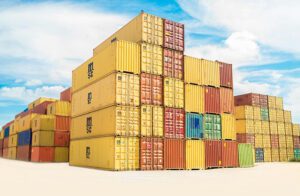The world’s largest nickel ore producer, Indonesia, is one of the key players in the energy transition. Despite its general tendency to stay out of conflict, the Southeast Asian country has recently been entangled in the U.S.-China trade clash.
Indonesia’s Coordinating Minister of Maritime and Investment Affairs, Luhut Binsar Pandjaitan, also known as “The Minister of Everything” is ambitiously pushing his country to become “a hub for the production of electric vehicles,” The New York Times reported.
Recently Luhut has pleaded with the Biden administration for a minerals trade deal in a move to maintain Indonesia’s standing as a friendly nation to the U.S. With this, the country could boost its nickel exports but also qualify for American tax credits under the Inflation Reduction Act (IRA), the NYT added.
But, because China is heavily involved in the investment and development of the nickel industry in Indonesia, Luhut’s requests to the U.S. have been denied several times.
In the energy transition and production of EVs, experts are estimating that the global nickel demand will surge from 2.2 million metric tons to 3.5-4 million metric tons by 2030, per McKinsey. With nickel being one of the main components in batteries, EV producers are expected to use more nickel than the stainless steel sector.
But despite its natural nickel resources, Indonesia has yet to develop the tools and technology to manufacture nickel products. To reap most of the benefits, Indonesia’s government is focused on opening more smelting facilities in the country, according to The Diplomat.
“As of this year, Indonesia is operating 43 nickel smelters in Sulawesi and the Maluku islands. A further 28 plants are under construction, and 24 are in the planning stages,” The Diplomat said.
On top of technical challenges, Indonesia is dealing with geopolitical pressure as well.
Back in 2014, Jakarta banned the export of nickel ore in order to push for a domestic industrial revolution, more specifically downstream nickel processing facilities.
The ban prompted the European Union to submit a complaint against Indonesia to the World Trade Organization (WTO) in January 2021. The EU claimed that the prohibition unfairly harmed European stainless steel companies. In 2022, the WTO ruled in favor of the EU.
“Indonesia’s decision to ban nickel exports demonstrates its commitment to mineral resource management and economic diversification. While some may argue that the ban disrupts the global supply chain for nickel, the long-term benefits of this move for Indonesia outweigh the short-term challenges,” The Diplomat said.














